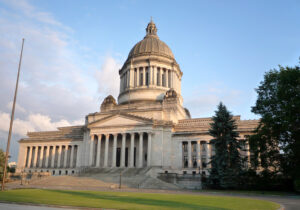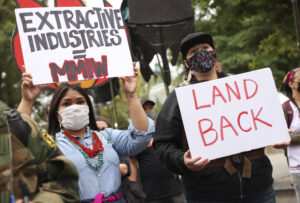Four Washington municipalities ban income taxes ahead of state Supreme Court ruling
3 min read
Four Washington cities now have banned income taxes as the state Supreme Court reviews a capital gains tax critics claim will trickle down to lower tax brackets.
Battle Ground joined Spokane, Granger and Spokane Valley on Monday night in banning local income taxes on businesses, individuals and investments, among other revenue sources. City council members approved the resolution on the grounds that income taxes would conflict with the well-being of the local economy and city life. The vote was unanimous.
“Small businesses are the backbone of our local, regional, state, and national economy and it is imperative that the City not put unnecessary hurdles in the way of their success,” the resolution reads. “As such, the Battle Ground City Council prohibits the imposition of a local income tax in the event a local income tax is determined legal and permissible by the Washington State Supreme Court or the Washington State Legislature.”
State lawmakers have tried to adopt a statewide income tax and lift restrictions on local income taxes for years. One such bill, Senate Bill 5928, was proposed in 2020 by Sen. Bob Hasegawa, D-Seattle.
The Seattle City Council tried and failed to pass a 2.25% tax on incomes of $250,000 for individuals and $500,000 for joint filers in 2017. The Washington Supreme Court shot down the graduated income tax in April after it was upheld by the state Appeals Court.
This past session, the Washington Legislature passed a 7% capital gains tax on sales of assets over $250,000. Capital gains are taxed as income at the federal level at a rate of 15% for most individuals. By comparison, the highest tax rate for single and joint filers according to the IRS’s 2021 tax schedule is 24%.
Washington’s capital gains tax has drawn two lawsuits from a range of wealthy investors living in the state who have challenged its legality. Under Washington’s 1960 state Supreme Court ruling, income is considered property which must be taxed uniformly under the state’s constitution. Ballot proposals to amend it have consistently failed over the past 80 years.
Critics have sounded the alarm that Washington’s capital gains tax, which takes effect in 2022, could open the door to a state income tax should the Washington Supreme Court uphold it. Moreover, its opponents have argued it will impede the state’s booming business.
“We are an economic powerhouse,” former state treasurer Duane Davidson, a Republican, said during a 2019 forum organized by the conservative Washington Policy Center think tank. “When you look at the states that don’t have one, they’re the same way.”
The absence of a state income tax has been hailed as a “competitive advantage” in advertisements from Washington’s Department of Commerce. Personal finance website WalletHub ranked Washington the second-healthiest state economy in the U.S. based on 29 economic indicators, including GDP, exports and jobless rates. It trailed Utah, which boasts income and capital gains taxes.
Washington Democrats and others have argued a state capital gains tax will help offset the state’s dependence on high sales taxes, which often see lowest-income households pay greater shares of their income. The capital gains tax, they argue, is an excise tax on the sale of goods and should hold up in court as a result.
Studies by the Tax Foundation think tank suggest income taxes are more volatile during a recession, especially corporate income taxes. While sales taxes remain more stable, they hit lower-income households harder during bouts of unemployment.
Chuck Collins, a progressive inequality scholar at the Institute for Policy Studies, said corporations migrate based on a host of factors, from the quality of life and cost of living for their employees and families to educational systems.
“If I’m a toxic waste chemical company, I’m going to Louisiana for the tax breaks and low regulation,” Collins said. “If I’m a high-tech company and want to attract a diverse and talented workforce, I’m staying in a coastal metro area.”
A ruling from the Washington Supreme Court regarding the capital gains tax is pending. It is unclear when plaintiffs should expect a final opinion.
The mayor of Yakima has signaled she plans to ask city council members to send a local income tax ban to voters in the next election.
This article was originally posted on Four Washington municipalities ban income taxes ahead of state Supreme Court ruling







